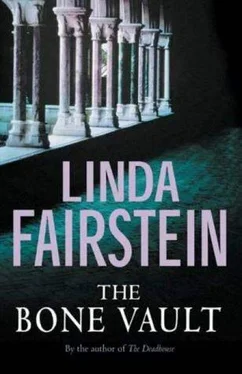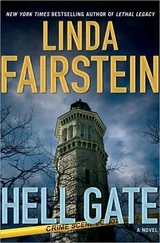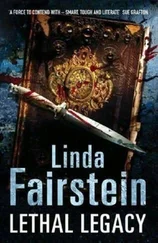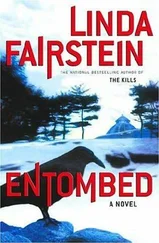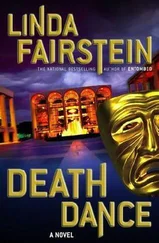I bet it does, I mused.
“How do you want me to reply to Eve?”
“Did you actually have any relationship with her when you worked at Natural History?”
“Not from her perspective. I mean, I saw her at a handful of meetings, I had to copy her on all my correspondence about the joint exhibition, but nothing personal at all.”
“Why not thank her for writing. Tell her your plans are still up in the air. Maybe you should say you’re already in Greenland, so she doesn’t try to reach you in London.” I smiled at Mike. “She seems anxious to talk about the Keystone Kops. Guess you should stop bungling and solve this damn case already.”
Clem turned back to the computer and typed her response. “More mail. Whoops, it’s from Zimm. He wants me to save an evening for him. Smart enough not to invite me to the museum. Not good for his reputation.”
I thought that was odd. He was almost ready to leave for his new job in Chicago and hadn’t seemed worried about harming his reputation at all.
She pressed the print function as she continued to read to us. “Police think Katrina was poisoned, he says. Mamdouba’s put the lid on all of them. Doesn’t want anyone talking to the cops out of his presence. They’re tightening up the attic and basement. No more wandering in and out of labs and storerooms. He knows how close I was to Katrina. Like that.”
E-mail was a strange phenomenon, as our Internet-related cases demonstrated. People who didn’t know each other at all developed on-line relationships with the mere sending and receipt of several messages. They frequently revealed things in this impersonal medium that they would never have said to the same relative stranger on the telephone or face-to-face. They often talked without the filters they used in conversations, and I was counting on that fact today.
“Does it feel right to you?”
“What he says to me? That he answers so quickly? Yeah. I didn’t know him well, but I’d guess his affection for Katrina is real. He’d want to know what she’d told me.”
“Then chum up to him,” Mike said. “Today is Tuesday, right? Tell him you’re getting into town this Friday. You can see him over the weekend. Then ask him some more questions. Exactly what has Mamdouba told him? What areas that used to be open have been closed off?”
He turned to me. “I’m telling you, Coop. We need layouts of those floor plans today. Ready when we get up there.”
“Laura can type the subpoenas as soon as she gets in. We can fax them up to the museum.”
“You ready to pick up where we left off last night?”
Clem took her hands away from the keyboard and swiveled her chair to face us.
“When we knocked off, I was asking about the friends who were working with you on the return of the bones. Were all of them here in New York, at the two museums?”
“By no means. I guess five or six of us were local. We’d talk about it at dinner or when we got together.” She smiled. “We’re aware that it was nothing we were going to solve in a hurry.”
“But the rest of them, how do you stay in touch?”
“E-mail, of course. The Internet.”
That answer pleased me. Once she identified her cohorts to me, a search warrant or court order could help our computer jocks download their office hard drives and examine their Internet browsers for information about sites visited and people contacted.
“On an official level, have you had any support from museum administrators?”
“It’s not a popular topic here. Try bringing up names like Qisuk and Mene. You’ll get a passel of denials, and when you go to find the records, they’ve all been purged. With whom have you talked about Katrina’s disappearance?” She caught herself. “Her murder?”
“At Natural History we’ve met with Elijah Mamdouba and the curator in charge of African mammals, Richard Socarides. Did you know either of them?”
“I’ve worked with both. Elijah’s a mystery to me. He’s a very kind man, but he’s really between a rock and a hard place. I tried to engage him on this issue any number of times. As a black African, he would, one might think, have a keen interest in doing the right thing. But he’s just a flunky for the trustees, and happy to be that.”
“What’s in it for the museums to fight this?”
“Think of the human time it takes to sort it all out. Then there’s the money to help identify millions of skeletal pieces by DNA. Each and every scientific discipline has a reason to oppose the return. The paleontologists and anthropologists don’t want to let these collections go. They think it’s more important to know what my greatgrandparents ate for lunch every day than to know they’re resting peacefully. Every archaeologist alive thinks this concept of returning the remains disrupts their ability to do their work, both in the field-now and for the future-and in the museums.”
Clem went on, “There’s a gold mine in these vaults. Some of the collections are priceless. And nobody wants to upset that apple cart.”
Mike laughed. “Not even the mammal man?”
“Socarides? Are you kidding? He sits on some of the most valuable bones in that museum. Have they let you see the elephant room?”
Mike and I both answered, “No.”
“There’s a maze of staircases that winds up to the attic. It’s a fantastic sight. Tiers and tiers of huge elephant skulls. Below them, the actual bones from their bodies, all draped in plastic coverings. Then a wall full of their teeth, ten pounds each. You know what an elephant’s skeleton weighs? Half a ton. And then you add to their value the fact that some were gifts of famous people. Those sad gray beasts shot by Teddy Roosevelt or donated by P. T. Barnum.”
“I guess just the worth of their ivory would make them even more treasured.”
“The tusk vault, that’s what you’d want to see.”
That word again. “Now this one’s a specific place?”
“Oh, yes. But it’s so well hidden within the museum that most of the people who work there don’t even know it exists.”
“Why does it?”
“It’s supposed to be a secret, a very small room with a dark green steel door. I’ve never seen it. Built, of course, to prevent the theft of the tusks, which is why none of us were ever able to find out where it is. Millions of dollars’ worth of ivory. Not only from the elephants, but, even more rare, from creatures like narwhals.”
“These rooms, these special rooms, are there several of them, Clem?”
“Dozens. For a variety of different purposes.”
It was clear that at our meeting the previous morning, Mamdouba hadn’t been forthcoming when we asked about private vaults.
Mike looked over at me. “Suppose you could work up enough probable cause to get a warrant. You know, get us in the museum to look for something. Like-like arsenic. Like a boat ticket to Cairo. Could we take Clem in with us and get her to show us around?”
“I’m still stuck on the probable-cause piece. We can talk about it when we leave here. Maybe we can get Zimm to help us, without a warrant.”
“There’s probably nothing I can find for you inside that place that he doesn’t already know about,” Clem said. “You should push him to help. I think he had a thing for Katrina. He tagged along for a few of our dinners.”
“As long as you bring that up, did you ever meet Pierre Thibodaux?”
“Several times, just at museum receptions and meetings. I wasn’t part of his world, that’s for sure.”
“Did Katrina ever talk about him?”
Clem blushed. “I don’t want to say anything that would make you think badly of her.”
“She’s dead. About six decades prematurely, if you ask me. I don’t care whether she liked married men or monkeys, I just need to know the truth,” Mike said.
Читать дальше
